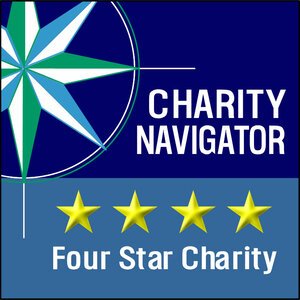Paige Callaway first put her savvy skills toward marketing music by helping her singer-songwriter husband Matt Robertson create a revenue stream off of his music. As a rancher herself, and the entrepreneur of a functional fit shirt business, Paige pushes back against the idea that the two careers can’t work together. Through helping Matt, she realized that many people, ranchers or not, could benefit from knowing more about the nuts and bolts of marketing a particular skill while managing a busy life. At the Gathering this year, Paige will lead two workshops, How To: Music Distribution and How To: Music Marketing, focused on helping artists share their craft with the public.
This interview has been edited and reordered for length and clarity.
When was your first time at the Gathering?
Probably seven years ago. Matt wasn’t an invited guest, but we went and he played in the open mic and we took it all in. Then I’ve been there almost every [year since].
How did you first hear about the Gathering? Was it something you were always aware of?
I was a little bit, because through college I became good friends with Adalita Tyson, and her dad Ian Tyson was obviously instrumental in it. So I had heard of it, but I was not well versed in the cowboy poetry side of things or the music side of things at all. All of that more or less came through dating Matt and then learning about the rest of it.
“The driving force behind [the workshops], is to of course, yes, get this music out to the public, but really to just give these cowboys a bit more of an income, and to allow them to showcase their work, because there’s a lot of great talent. ”
What inspired you to teach the workshops at the upcoming Gathering?
I manage [Matt’s] distribution of music, and I have my own business. I do a lot of marketing consulting for other businesses. When Matt and I started dating, [he was] missing some opportunity to create a revenue stream off of [his] music. I started researching and we started distributing his music. At first, he’d get a hundred bucks, a couple hundred bucks, and then it grows and grows and you’re making over a thousand bucks a month, and some months up to two thousand. I’d just assumed most of these artists had done this. When we realized how much Matt makes monthly off of his music compared to a lot of other artists, there’s a significant difference. It kind of just boils back to the way in which [the music] was distributed, and the research I did, and the choices we made to get it out onto the platforms, and the availability of it. So, I’m really keen on getting that [information] out there, available for other artists to have that income too, because I think it’s important.
R James Shoshone, Matt Robertson, and Paige Callaway at the 38th Gathering. Photo by Jessica Brandi Lifland.
The cool thing about Elko is that it’s very organic. You get the authentic cowboys there, for the most part. Especially in the open mic, you get some really authentic people there. But those authentic people are probably like Matt–they spend their days cowboying, starting colts. Turning on a computer and distributing their music is so far down their list of shit they’d ever consider doing, and yet there’s such an opportunity for them to create some profit from their gifts. And so that’s kind of been the driving force behind [the workshops], is to of course, yes, get this music out to the public, but really to just give these cowboys a bit more of an income, and to allow them to showcase their work, because there’s a lot of great talent.
Even Matt has said [he] always thought [he’d] just do [his] music when [he’s] done cowboying, because you either have to quit and go to Nashville, or you just cowboy. You don’t have to. You can do both. You just need a little bit of guidance on what that looks like, because the fact of the matter is, somebody like Matt, he wouldn’t be happy playing music twelve months of the year. He’s happy when he can start colts, go cowboy, and, if he can, play a few gigs and write his songs. He’s not built for twelve months of touring or sitting in a recording studio. We’re in a place right now with the music industry that people like that can still share their talents.
What is the difference between your music distribution and music marketing classes? Is the combination of the two together the most valuable?
The combination is for sure the best. The first one is very obviously dedicated to the actual distribution: how to set up your account, where to set it up, how it works, the breakdown of it, the nuts and bolts, the ABCs. The second one, the marketing one, is obviously going to be applicable to people who are distributing their music. But the marketing one is also applicable to anybody who has anything they sell. Whether you have a little boutique or you’re making cinches, the marketing side would be good for anybody. That marketing course is going to be about opening those communication channels on social media, and how to do that without feeling overwhelmed.
“Whether you have music to share or reins that you build, if you can learn how to use social media as a tool and communicate with the demographic out there that wants to buy your stuff, then you’ve got it made to shape. ”
Are the classes still helpful for people who aren’t from a ranching background?
It’s still applicable. If you’re a music person or a poet, or a plethora of other things, or if you want to have a better online presence without your life, your time, being sucked dry from you, the marketing side of things–that marketing course–is going to be huge. My name business is functional fitting shirts for horsewomen and cowgirls, and I have built that entire business off of the back of social media for eight years. And before that, I had a graphic T-shirt business I built solely on social media, and then I sold it and moved on and did this one. I have done marketing consulting and all of this surrounded by social media. And I think at the end of the day, whether you have music to share or reins that you build, if you can learn how to use social media as a tool and communicate with the demographic out there that wants to buy your stuff, then you’ve got it made to shape. That’s what it is. It’s just streamlining that communication channel to the people that want to buy from you.
Marianne Molland takes photos for the Western Folklife Center Instagram account at the 38th Gathering.
You come from a ranching background. How do you find the balance between your business and your cowboy work?
It is a balance. And sometimes it ebbs and flows. Sometimes there’s more computer time than we want. I’m always finding a way to make my business run more efficiently, so I can spend more time on the backs of my colts and training horses. There’s some seasons that I do a lot of computer work, or I’m expanding my business, or I’m taking on other marketing stuff. But at the end of the day, I have things run like a fairly well-oiled machine to the point that I can work like 10 hours a week and run my shirt business. And what I do–all of it is remote–I have about four or five contract workers, I streamline the production of upwards to 150 shirts a month, everything is shipped out. Through social media and streamlining social media, I’ve been able to do that, and then all the while balancing that with horses and life and everything else. I still take online courses to learn and freshen up my marketing because the world’s evolving, we’re evolving, and I really am just an advocate for investing in ourselves.
What are some memorable moments from the Gathering? What has been the experience for you there?
There are two memorable moments. The first one, it was Ian’s last show there, and we sat along the side of the stage and watched him play, which was special. When I was young, I had all Ian’s tapes. That was the coolest music ever, and I listened to him for years, like through my five-year-old to ten-year-old lifespan. So, that was kind of a full circle moment to see him live.
And then another one would be: I lived in Stephenville, Texas, when Reckless Kelly would play City Limits. I didn’t know their names, I just knew them as Reckless Kelly. I remember one year we went to the radio station [in Elko], Matt had an interview. We’d gone out to dinner with Chaz [Mitchell] and some of Chaz’s friends the night before. I met them and they were nice. We got to the radio station, and I’m like, “It’s so weird they’re playing Reckless Kelly in Elko, Nevada, this is the weirdest thing.” And then that night, we watched the night show, and I put two and two together that we’d had dinner with Reckless Kelly the night before, and I didn’t know. And it was funny, because then, all of a sudden, I got really nervous. This was my college career, [Reckless Kelly] basically were playing nonstop, so that was pretty cool to get to know them, but not realize who they were until after and then connect the dots.
What are you looking forward to this year at the Gathering?
Matt Robertson, Paige Callaway, and Jessie Veeder backstage at the 38th Gathering. Photo by Marla Aufmuth.
Over the course of going there, we’ve gotten to know some really good people that we consider close friends, and it seems like it’s literally just a gathering where we get to reconnect with those people. So, it’s always nice to see people that we haven’t seen all year long and catch up with them. That’s a big thing I’m looking forward to. Matt has been writing some new music. Some of the new songs he’s written I think are some of the best work he’s done, so I’m excited for him to share that. It feels like this time of year is so busy—when all of that’s done I get to go to Elko and hang out and be around lovely people and eat great food and take in the music and the scene, so I always look forward to it; it’s like my vacation and recalibration time. I’m excited to teach the workshop. And I think the other thing is that I’ve written a few songs for Matt and with Matt, but I’m not per se a songwriter, but as a creative individual on other fronts, when all of those artists and talents are together, there’s a very cool creative energy and feeling in Elko that’s just…it’s hard to explain unless you’ve been there, and I look forward to that too. Matt and I both always leave there very inspired.







